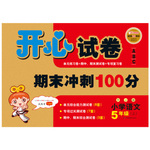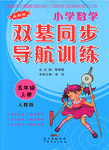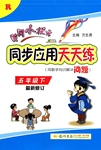
���ĸĴ�
����Ӣ�������ʦҪ��ͬ��֮�佻�������ģ���������ͬ�����������ġ����й���10�����Դ���ÿ���������������ÿ��������漰һ�����ʵ����ӣ�ɾ�����ġ�
���ӣ���ȱ�ʴ���һ��©�ַ��� (^)������������д���üӵĴʡ�
ɾ�����Ѷ���Ĵ���б��(\)������
�ģ��ڴ��Ĵ��»������ߣ����ڸ�����д���ĺ�Ĵʡ�
ע�⣺1.ÿ���������ľ�����һ�ʣ�
2.ֻ������10�������ߣ��ӵ�11���𣩲��Ʒ֡�
As is well know, when senior students graduate from school, most of their textbooks are thrown away , that are still in good condition. What waste of it ! I quite agree to the suggestion that we should recycle these textbooks. For one thing, recycling textbooks can save a lot of nature materials, which are used to making textbooks. For other, senior students may have plenty of usefulnotes on the pages. They are very helpful to those textbooks users. However, the cost of the books will unload some burden of the families of the students. Actually in Australia and some other countries, recycling textbooks are popular and that it gives us a good example. Why can��t they have a try?
 �����Ծ���ĩ���100��ϵ�д�
�����Ծ���ĩ���100��ϵ�д� ˫��ͬ������ѵ��ϵ�д�
˫��ͬ������ѵ��ϵ�д� �Ƹ�С״Ԫͬ������������ϵ�д�
�Ƹ�С״Ԫͬ������������ϵ�д�
| �꼶 | ���пγ� | �꼶 | ���пγ� |
| ��һ | ��һ��ѿγ��Ƽ��� | ��һ | ��һ��ѿγ��Ƽ��� |
| �߶� | �߶���ѿγ��Ƽ��� | ���� | ������ѿγ��Ƽ��� |
| ���� | ������ѿγ��Ƽ��� | ���� | ������ѿγ��Ƽ��� |
��Ŀ������Ӣ�� ��Դ��2015-2016ѧ��������庽����ѧ��һ��ѧ����ĩӢ���Ծ��������棩 ���ͣ��Ķ�����
Oldest , Youngest , or in the Middle ?
Were you the first or last child in your family? Or were you a middle or the only child? Some people think it matters where you were born in your family. But there are different ideas about what birth order means.
Some people say that oldest children are smart and strong-willed. They are very likely to be successful. The reason for this is simple. Parents have a lot of time for their first child. They give him or her a lot of attention. So this child is very likely to do well. An only child will succeed for the same reasons.
What happens to the other children in a family? Middle children don��t get so much attention. So they don��t feel that important. If a family has many children, the middle ones sometimes get lost in the crowd. The youngest child, though, often gets special treatment. He or she is the ��baby��. Often this child grows up to be funny and charming.
Do you believe these ideas about birth order? A recent study saw things quite differently. This study found that the first children believed in family rules. They didn��t take many chances in their lives. They usually followed their own ideas . They took chances. And they often did better in life.
Which theory about birth order do you believe? Look at your own family or you friends�� families. Decide which idea fits what you see.
1.This passage is about __________.
A. why the oldest children in a family usually succeed
B. why some children refuse to follow orders
C. ways in which birth order may affect how children grow up
D. how people have a lot of trouble agreeing about ideas
2.The statement that middle children �� sometimes get lost in the crowd�� means that _________.
A. they have a poor sense of direction
B. they don��t get a lot of attention
C. they have a strong desire to be leaders
D. they can��t get along with others
3.The underlined word �� theory �� means ________.
A. idea B. comparison C. evidence D. surprise
�鿴�𰸺ͽ���>>
��Ŀ������Ӣ�� ��Դ��2016�켪��ʵ����ѧ������ѧ�ڵ����ģ��Ӣ���Ծ��������棩 ���ͣ�����
�Ķ�������ϣ��ڿհ״������ʵ������ݣ�������3�����ʣ��������ڵ��ʵ���ȷ��ʽ��
As we all know, questioning can lead to1. (search) for an answer. If we are in the habit of raising doubts as to2. what we are told is true, we can find the correct answer and learn more.
Two years ago, our teacher3. (offer) us an answer to a difficult math problem in class. Although the answer seemed a little strange, nobody 4.me doubted it. Thinking that his answer might be wrong, I5. (careful) analyzed the problem and tried to work6. out in a different way. Half an hour 7.(late), I managed to find the correct answer. When I showed my answer to him, the teacher praised me for my8. (depend) thinking.
From this experience, I have learned that questioning can serve as9. bridge that helps us to seek the10._(true).
�鿴�𰸺ͽ���>>
��Ŀ������Ӣ�� ��Դ��2015-2016ѧ��㶫���ڸ���ѧ�߶���ѧ������Ӣ���Ծ��������棩 ���ͣ��������
�ٶ������������μ�����ij����̨�ٰ����ѧ��Ӣ���ݽ�����������̨����֯����ȥ�����μ�һ��Ӣ����������Ӫ����־��й�����������������������±����ṩ����Ϣ��Ӣ����������ʽ��������ڴ��������
�ʱ�� | 7��16�ա�22�ջ�8��18�ա�24�� |
����� | �μ�Ӣ��� ѧ��Ӣ����� ��Ӣ�イ�� ����Ӣ��̾� ��Ӣ���Ӱ �����ѧ���� |
�Ի���ݵ� �����Ҫ�� |
ע�����
1. ѡ���ʺ����ʱ�䣬��˵�����ɣ�
2. ѡ��������ϲ���Ļ����˵�����ɣ�
3. �Ի�����������һ�������Ҫ��
4. ������100���ң�
5. �ŵĿ�ͷ�ͽ�β�Ѹ�����
Dear Sir or Madame��
I��m very glad to be invited to the English summer camp.
_________________________________________________________________________________
_________________________________________________________________________________
_________________________________________________________________________________
_________________________________________________________________________________
_________________________________________________________________________________
_________________________________________________________________________________
Thank you very much,
Yours truly,
Li Hua
�鿴�𰸺ͽ���>>
��Ŀ������Ӣ�� ��Դ��2015-2016ѧ����������ظ���ѧ��һ�϶ο�Ӣ���Ծ��������棩 ���ͣ�����
�������
David: It��s a great art show, isn��t it? By the way, I��m David.
Lucy: Nice to meet you, David. My name is Lucy. The art show is very 1.(success). The paintings on exhibition are beautiful indeed and they have left me a deep 2. (impress).
David: Nice to meet you, too, Lucy. May I know where you are from?
Lucy: Actually, I was born in Paris, but I 3.(bring) up in London. How about you?
David: Oh, I��m a native American born in New York. I��m4. art teacher in New York University. This art show is held by my students.
Lucy: Really? I��m a student 5.(major) in piano performance at the same college. I 6.(hold) a piano party next Saturday night at the Silver Bar. Would you like to come?
David: I��d love to. Do you mind 7. I take my daughter with me?8.painting, she is fond of listening to music as well. She has an MP3 player, with 9.she can listen to some music when she feels10.(tire) with her lesson.
Lucy: That��s great. I will be very glad to see you and your daughter at my piano party next Saturday.
�鿴�𰸺ͽ���>>
��Ŀ������Ӣ�� ��Դ��2015-2016ѧ�꼪��ʵ����ѧ�߶���ѧ����ĩӢ���Ծ��������棩 ���ͣ��������
You should read the _________ in the car repair manual (�ֲ�) carefully before you start to work on it.
A. instructions B. descriptions
C. introductions D. explanations
�鿴�𰸺ͽ���>>
��Ŀ������Ӣ�� ��Դ��2016������˲���һ��ѧ������12���¿�Ӣ���Ծ��������棩 ���ͣ���ѡ��
���ݶ������ݣ��Ӷ��ĺ��ѡ����ѡ��������հ״������ѡ�ѡ����������Ϊ����ѡ�
Home on the Way
People need homes. Children assume their parents�� place as home. Boarders call school ��home�� on weekdays. Married couples work together to build new homes and travelers have no place to call ��home��, at least for a few nights. 1.? Don��t they have the right to a home? Of course they do.
Some regular travelers take their own belongings like bed sheets, pillowcases and family photos to make them feel like home no matter where they are. Some stay for long periods in the same hotel and as a result become very familiar with service and attendants. 2. .Furthermore, driving a camping car during one��s travels and sleeping in the vehicle at night is just like home��only mobile!
And how about keeping relationships while in transit(������)? 3.. Some send letters and postcards, or even photos. Others may just call and say Hi just to let their friends know that they��re still alive and well. People find ways to keep in touch. Making friends on the way helps travelers feel more or less at home. 4..
Nowadays, fewer people are working in their local towns, so how do they develop a sense of belonging? Whenever we step out of our local boundaries, there is always another ��home�� waiting to be found. 5. , we can make the place we stay ��home��.
A. Hostels������� provide a clean safe place to stay while you are travelling the world
B. Others may simply put some flowers by the hotel window to make things more homely
C. Backpackers in youth hostels may become very good friends,even closer than siblings(����)
D. So how about people who have to travel for extended periods of time
E. No matter where you go in the world,hotels are there,too
F. Some keep contact with their friends via Internet
G. Wherever we are,with just a little bit of effort and imagination
�鿴�𰸺ͽ���>>
��Ŀ������Ӣ�� ��Դ��2016�����������и�����ѧ��ͳ����Ӣ���Ծ��������棩 ���ͣ�����
�Ķ�������ϣ��ڿհ״������ʵ������ݣ�������3���ʣ��������ڵ��ʵ���ȷ��ʽ�����Ѵ�д�ڴ���ϵ���Ӧλ�á�
When I looked out at the white blanket 1. covered the ground, I couldn��t help but smile a bit. It was so beautiful. It softened the bare trees and hid the dead grass. In the 2. (distant), I could hear the sound of the snow falling on the road, the barking of a happy dog, and the laughter of children playing outside, enjoying their day off from school.
The sweet music of that laughter 3. (bring) back a hundred memories of past winters. I remembered 4.(catch) snowflakes on my tongue, building snowmen, making snow angels, sledding down hills, and always losing the snowball fights with first 5. brothers and then my own children. Standing there in that warm coat of remembering made the wind 6. (little) cold. I looked up, stuck out my tongue, and 7. the first time in years caught a snowflake on it. It tasted so fresh 8. clean. It tasted like youth, like joy, and like love. I looked up to the heavens and thanked God for all of my memories and for the simple 9. (true) that you are never 10. old to be young again.
�鿴�𰸺ͽ���>>
��Ŀ������Ӣ�� ��Դ��2015-2016ѧ�������ʵ����ѧ��һ������Ӣ���Ծ��������棩 ���ͣ��������
This is a complex operation. A team of nurses _____ the doctor in performing the operation.
A. trained B. assisted C. interviewed D. added
�鿴�𰸺ͽ���>>
����ʡ������Υ���Ͳ�����Ϣ�ٱ�ƽ̨ | �����к���Ϣ�ٱ�ר�� | ����թƭ�ٱ�ר�� | ����ʷ���������к���Ϣ�ٱ�ר�� | ������Ȩ�ٱ�ר��
Υ���Ͳ�����Ϣ�ٱ��绰��027-86699610 �ٱ����䣺58377363@163.com